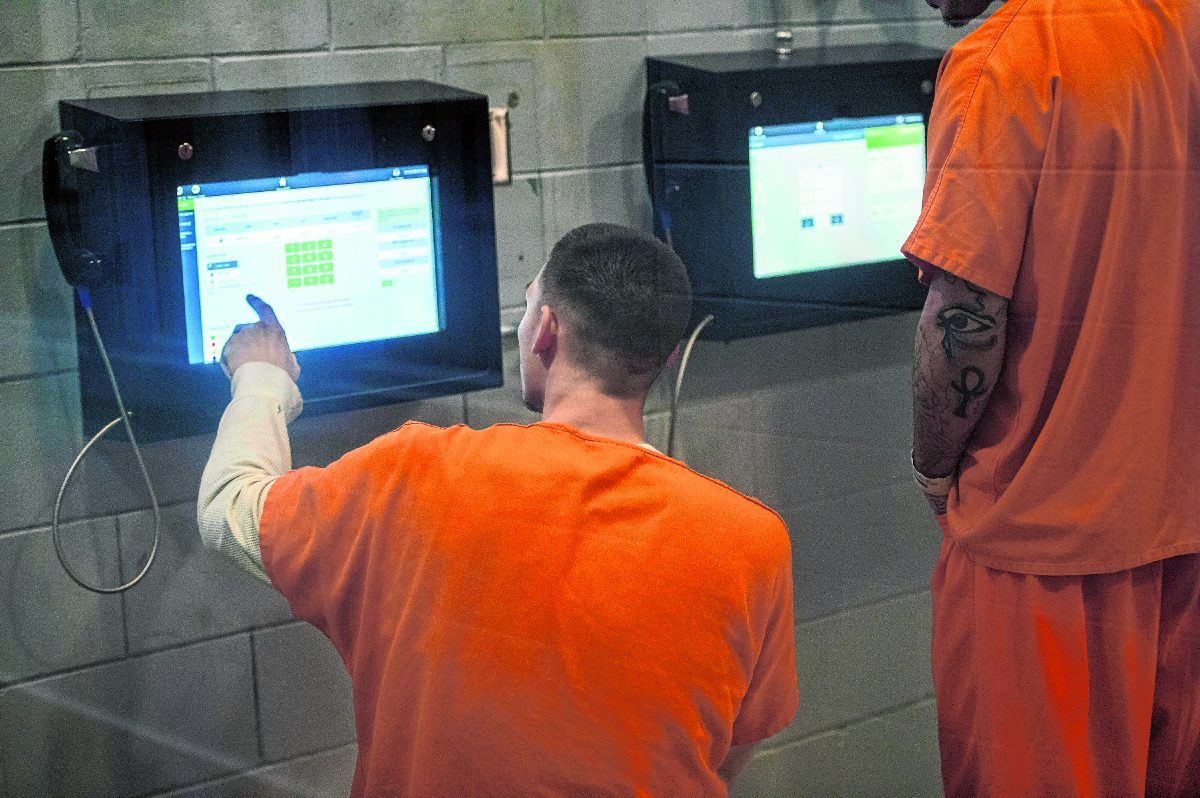In a small store at the Johnson County jail, inmates buy luxuries that most people can buy at their nearest convenience store.
They buy cookies, chips, candy, sodas, condiments, toiletries and flannel underwear. At several phones booths inside the jail, inmates can pay to call family and friends or send emails, making requests for services from the jail.
The money inmates spend at the store and to communicate with the outside world pays for equipment, allowing jail leaders to buy what they need without burdening taxpayers, Johnson County Sheriff Duane Burgess said.
Every month, $32,000 to $35,000 flows into the jail’s commissary account, and just shy of half of that comes from communications, such as phone calls, made by inmates. Family members and friends can deposit money into each inmate’s personal commissary account, which allows them to buy snacks, make phone calls or send emails.
[sc:text-divider text-divider-title=”Story continues below gallery” ]Click here to purchase photos from this gallery
The sheriff’s office has used those funds to replace radios that could no longer be fixed, buy body scanners and a K9, and will be used to buy another K9 and body armor for deputies.
It allows officials to address needs without asking dipping into the department’s annual budget, or asking the Johnson County Council, the fiscal arm of the county, for additional funds, Burgess said.
"That is a burden the taxpayers wouldn’t have had or I would have had to go to the county council," he said. "If I am able to take it out of commissary, that is what I try to do."
What commissary funds can be spent on is governed by state law. Each jail must establish a commissary fund that is separate from the department’s general budget, according to the law.
Each sheriff is allowed to disburse the money for specific items without appropriation from the fiscal body that oversees the jail. In most cases, that’s the county council.
The items commissary funds can be spent on include merchandise for resale, commissary operating expenses, special training for law enforcement officers, equipment installed at the jail, activity to maintain order at the jail and equipment including vehicles, computers, communication devices, machinery, animal training, holding and feeding equipment, and sheriff’s office attire.
Sheriffs do not have to get permission to use the commissary funds, but Burgess lets the Johnson County Council and Johnson County Board of Commissioners know what he spends the money on in an effort to remain transparent, he said.
"We try to use that money to be fiscally sound," he said.
Burgess has made purchasing equipment that’s not in the department’s budget, but that he believes the sheriff’s office needs as one of his top priorities for the fund.
"I don’t want to be No. 2. I want to be No. 1 in law enforcement, and I think that is where the sheriff’s office is at," he said.
Last year, commissary funds paid for an additional K9 at the sheriff’s office. The dog cost about $12,000, which included the cost of the K9 and training for both the dog and the officer.
"That is a (cost) burden the taxpayers would not have had," Burgess said.
Handheld radios used by officers are slowly wearing out and becoming obsolete; many of them can no longer be repaired. The sheriff is using commissary funds to slowly replace the radios, with about 40 needing replaced, he said. Each radio costs about $2,600.
Sheriff’s office officials have also used the fund for diving equipment, SWAT team equipment and to pay for certifications. They have also used it to paint offices and replace carpet, and to buy body cameras for the officers, Burgess said.
"These are items we didn’t have to have taxpayers pay for," he said.
Up next on the commissary fund docket is another K9 or two.
"I don’t want to go in front of (the council)," Burgess said. "I don’t want the taxpayers to pay more."





